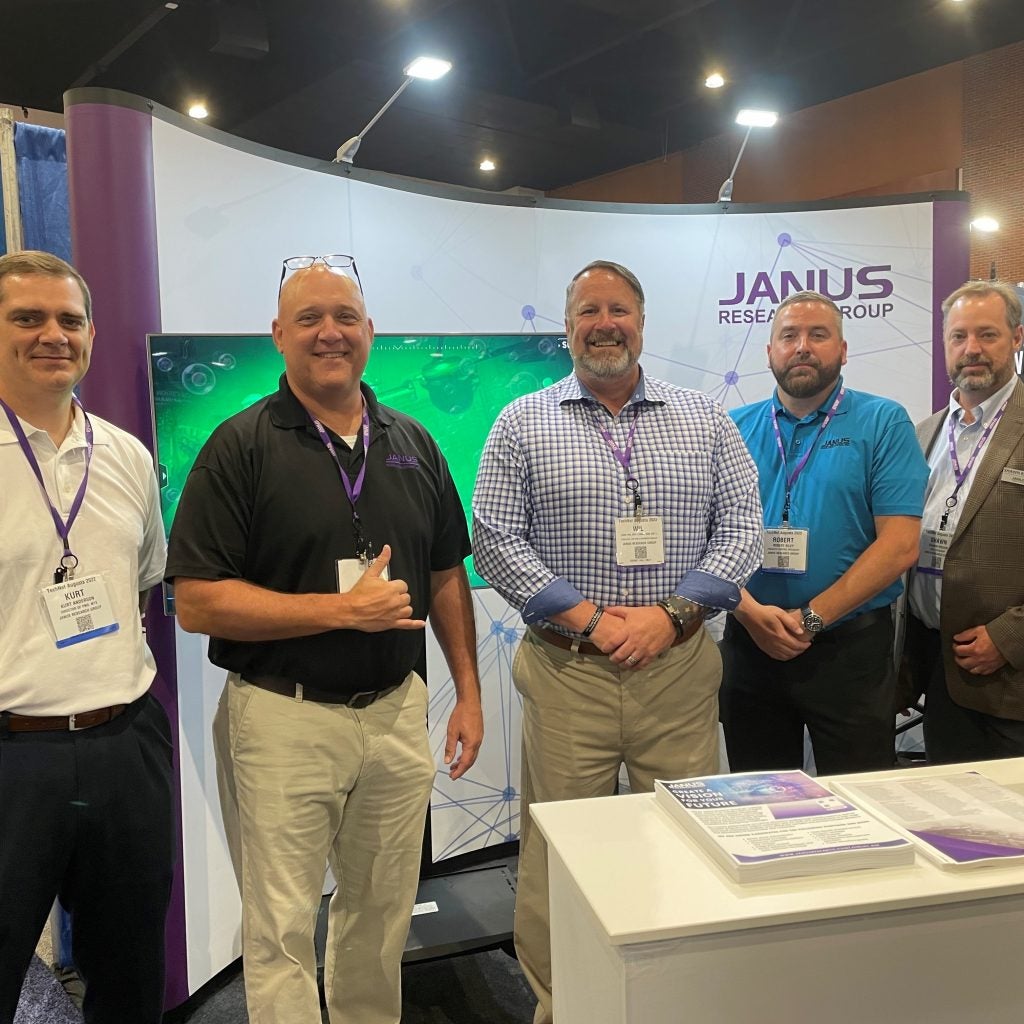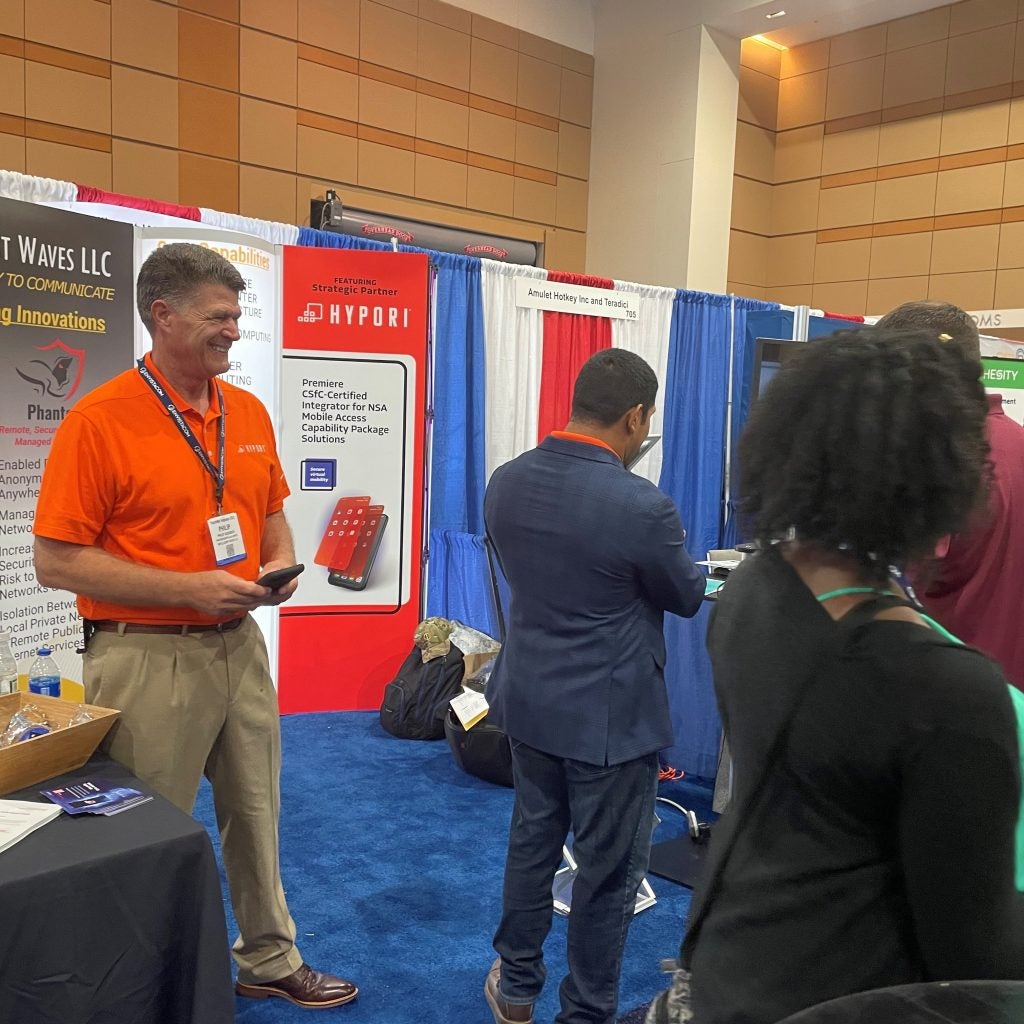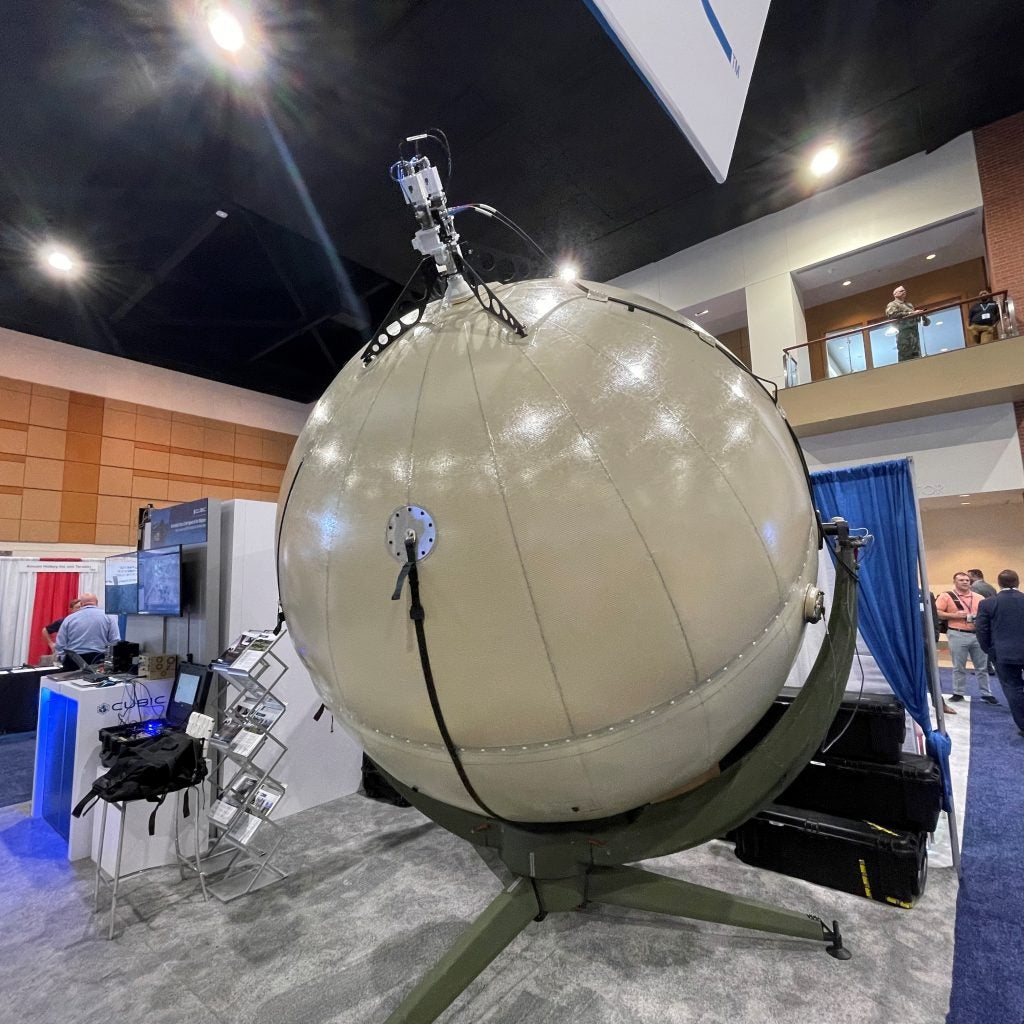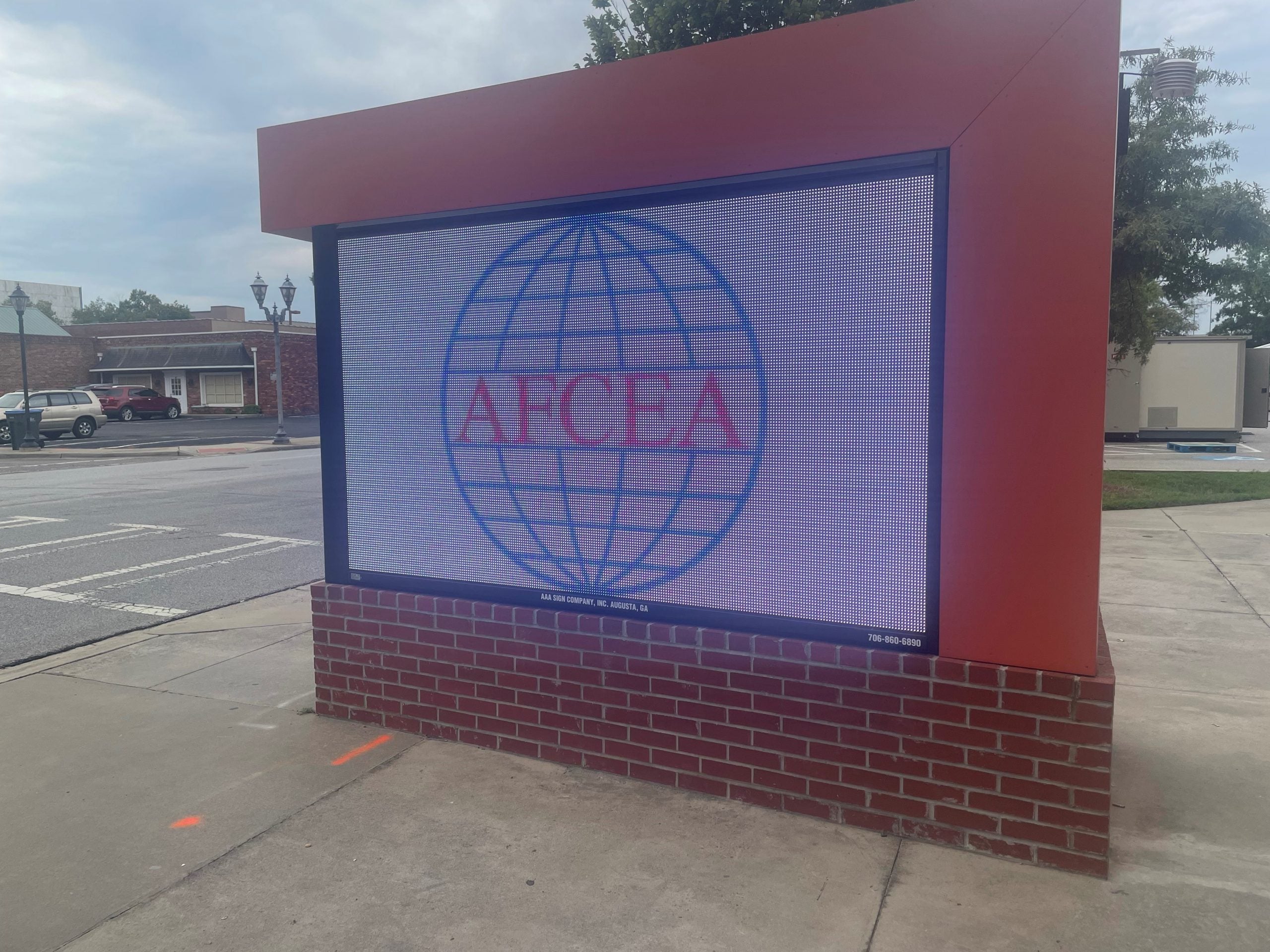The seminars, panels and presentations at the AFCEA TechNet Augusta 2022 heavily emphasized the convention’s collaborative mission.
The event’s website says it’s “designed to open the lines of communication and facilitate networking, education and problem solving,” for discussing “the procurement challenges the military, government and industry face during a time of uncertain budgets and runaway technology advances.”
In between sponsored social events and keynote talks about cybersecurity and related fields was an elaborate trade expo. More than 160 exhibitors, including tech companies and consulting firms, set up displays at the Marriott Convention Center ready to present their wares—largely for military contracts.
JANUS Research Group is one local example. The 25-year-old technology, engineering and consulting firm is based in Evans, specializes in a wide range of solutions offered through Army contracts—often at Fort Gordon—including cyber defense, logistics, modeling and simulation and even realistic virtual training, called serious games.
MORE: High-tech goes into high gear at the TechNet Augusta 2022 conference
Whereas digital training for soldiers once upon a time was largely PowerPoint presentations, JANUS has spent years developing training modules alongside simulations. Now servicemembers can potentially take advantage of thousands of hours’ worth of first-person style virtual training, explains Kurt Anderson, director of modeling, simulation and training at JANUS.

“You can put eight to 20 students into a scenario where they each operate in 3D environments,” Anderson said, noting that the interactive experience is produced not only through graphics and animation. “It’s actually modeling what mode everything is in. If you’re in your vehicle, you’re going to make sure that all the electrical stuff is powered up in the right sequence, propagation of all of the connectivity across radios, modems transmit down to the network layers. So a very deep simulation.”
Hypori, a software start-up based in Austin, Texas, hosted a display table exhibiting its virtualized Android workspace technology, centered on providing mobile security and access.
“Most of these guys, to do their job, have to access a classified network, and so typically, the only way used to be able to do that is on a device that they furnished to you,” said Hypori CEO Philip Goodrich, explaining the network management difficulties of military and other personnel dealing with confidential data .
MORE: Upcoming TechNet Augusta conference features international “capture the flag” tech competition
Goodrich stresses that accessing classified information often calls for using designated devices: carrying two phones or two laptops. This becomes both cumbersome and expensive. Hypori offers technology that enables users to connect to classified networks on their own personal devices.

“It’s still secure, and you don’t have to worry about any data ever being on your device or over touching it or ever being seen,” Goodrich said. “I don’t want to use the term, but it’s almost like having an invisible phone.”
San Diego-based Cubic Corporation had a display and demonstration of its inflatable tracking antenna. The two-meter portable satellite receiver is an example of ground antenna transmit and receive tech, or GATR. It is configured to download geospatial data, often surveillance and reconnaissance imagery.

“When I’m taking just raw radio signals into this, I decide what frequency I want to look for, and once I picked that frequency, I’m looking for it, it gets rid of everything else and then that frequency gets demodulated into data.”,” said Bill Meehan, Director of Business Development for Cubit’s GATR technologies. “It’s satellite communications 101.”
Skyler Q. Andrews is a staff reporter covering business for The Augusta Press. Reach him at skyler@theaugustapress.com.










